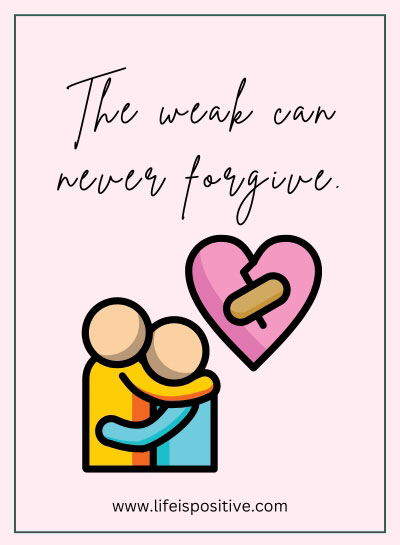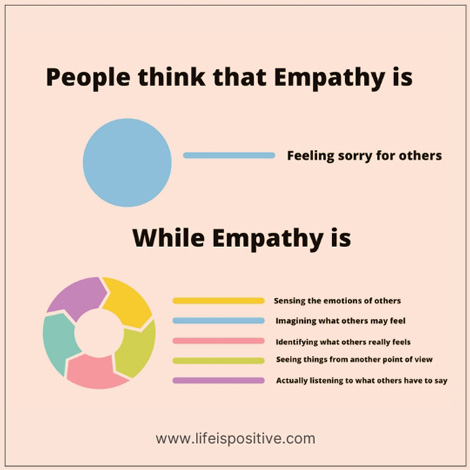|
Getting your Trinity Audio player ready...
|
Let’s talk about something we all need but often find tricky: forgiveness. Whether it’s forgiving someone who did us wrong or cutting ourselves some slack for past blunders, forgiveness is a biggie.
But guess what? Science has a lot to say about it, too!
Yes, science is here to show us the ropes of mastering forgiveness. So, get ready for 14 eye-opening things science can teach you about forgiveness.
1. Forgiveness Reduces Stress
We all know stress is the ultimate buzzkill. It messes with your sleep, mood, and overall health. But here’s a little ray of sunshine: forgiveness can actually cut down on stress.
Yes, studies show that people who practice forgiveness have lower stress levels. So, next time you’re feeling frazzled, try ditching that grudge. Your body will totally thank you for it.
2. It’s Good for Your Heart
No joke! Forgiveness is seriously good for your heart. Research shows that folks who forgive have lower blood pressure and a healthier heart rate.
It’s like giving your heart a cozy little hug every time you let go of that anger.
3. Forgiveness Boosts Your Immune System
This might sound bonkers, but forgiveness can actually give your immune system a boost.
Clinging to anger and resentment can mess with your immune response, making you more prone to getting sick.
So, forgive and forget, and your body might kick that next cold to the curb a bit faster.
Read: 10 Forgiveness Quotes That Will Change Your Perspective
4. It Improves Mental Health
Mental health is super important, and forgiveness is a game-changer here. People who forgive usually deal with less anxiety, depression, and other mental health issues.
Think of it as a mental detox.
Holding grudges can drag you down, but forgiveness lightens the load and sets you free.
5. Forgiveness Enhances Relationships
Whether it’s with your friend, family, or significant other, forgiveness is the secret sauce for healthy relationships.
Forgiveness helps build trust and strengthen those bonds. It’s a total win-win.
Clinging to anger just builds walls, but forgiveness? That opens doors wide open.
6. It Can Make You Happier
Who doesn’t want to be happier, right? Studies show that people who forgive are generally way happier.
They feel more positive vibes and have a better overall sense of well-being. It’s like adding a splash of sunshine to your life!
7. Forgiveness Encourages Personal Growth
When you forgive, you’re not just doing a favor for the other person—you’re actually helping yourself grow. It’s a total maturity and emotional intelligence flex.
It shows you can rise above the drama and focus on the good stuff.
Read: How to Release Anger: 3 Healthy Ways to Let it Out
8. It Promotes Empathy
Forgiveness and empathy are like peanut butter and jelly—they just go together.
When you forgive, you start seeing things from the other person’s point of view. This leads to more understanding and compassion, turning you into an empathy rockstar.
9. Forgiveness is a Skill You Can Learn
Good news: you don’t need to be a natural-born forgiver. It’s a skill you can totally learn.
Practice makes perfect. Start with the small stuff, and before you know it, forgiving and moving on will be a breeze.
10. It’s Linked to Better Sleep
Ever tossed and turned all night because you were stewing over something? Forgiveness can fix that.
Research shows that people who forgive catch more Zs. So, if you want to sleep like a baby, try letting go of that anger before bed.
11. Forgiveness Can Reduce Physical Pain
This might surprise you, but some studies suggest that forgiveness can actually reduce physical pain.
Yes, people who forgive report less chronic pain. It’s like a natural painkiller—no prescription required.
12. It Helps You Live Longer
Forgiveness might just be your secret to a longer life. Studies show a link between forgiveness and living longer.
It makes sense—less stress, better health, and happier relationships all add up to more years to enjoy.
Read: 6 Healthy Ways to Release Anger
13. Forgiveness is Freeing
Holding onto anger and resentment is like lugging around a heavy backpack.
Forgiveness? It’s like dropping that backpack and feeling totally free. It’s liberating and lets you move forward with your life.
14. It’s Good for Your Brain
And here’s the cherry on top: forgiveness is great for your brain. It boosts cognitive function and mental clarity.
When you’re not bogged down by negative emotions, your brain can work like a champ.
How to Practice Forgiveness
Alright, so now we know why forgiveness is so awesome. But how do we actually practice it? Here are a few tips to get you started:
1. Acknowledge Your Feelings
First things first, acknowledge your feelings. Don’t shove them under the rug or pretend they don’t exist. Accept that you’re hurt or angry, and let yourself feel those emotions.
2. Reflect on the Situation
Take a breather and reflect on the situation. Try to figure out why the other person acted the way they did. You’re not excusing their behavior, but it can help you get some perspective.
3. Make the Decision to Forgive
Forgiveness is a choice. You’ve got to decide to ditch the anger and resentment. It’s not always a walk in the park, but it’s totally worth it.
4. Practice Empathy
Put yourself in their shoes and see things from their perspective. It helps you develop empathy and compassion.
5. Let Go of Expectations
Don’t wait around for an apology or anything. Forgiveness is all about freeing yourself, not getting something from the other person.
6. Focus on the Present
Stay in the present. Don’t get stuck in the past or stress about the future. Focus on what you can do right now to keep moving forward.
7. Seek Support if Needed
If you’re having a tough time forgiving, it’s totally okay to get some backup. Talk with a friend, family member, or therapist. Sometimes, a fresh perspective can make all the difference.
The Science Behind Forgiveness
So, why exactly does forgiveness have all these amazing benefits? Let’s dive into the science a bit. When we hold onto anger and resentment, our bodies go into fight-or-flight mode. This triggers the release of stress hormones like cortisol and adrenaline.
While these hormones are helpful in short bursts, chronic stress can wreak havoc on our bodies and minds. Forgiveness, on the other hand, helps to reduce these stress hormones.
It activates the parasympathetic nervous system, which is responsible for rest and relaxation. This can lead to lower blood pressure, a stronger immune system, and better overall health.
Moreover, forgiveness can rewire our brains. Neuroplasticity, the brain’s ability to change and adapt, means that practicing forgiveness can actually create new neural pathways.
Over time, this makes it easier to let go of anger and resentment and embrace empathy and compassion.
Final Thoughts On Forgiveness
Forgiveness isn’t always easy, but it’s incredibly powerful. Science shows us that forgiving others—and ourselves—can lead to a healthier, happier, and longer life.
Research reveals that forgiveness reduces stress, improves heart health, boosts the immune system, and enhances mental well-being.
Letting go of grudges can profoundly transform your life. So, next time you’re faced with a situation that calls for forgiveness, remember these 14 science-backed benefits.
Let go of that grudge, embrace forgiveness, and watch your life transform. If you found this article helpful, share it with a friend who might need a little encouragement to forgive.
And don’t forget to let us know—what’s the biggest lesson you’ve learned about forgiveness? I’d love to hear your thoughts!
For more empowering content, connect with our vibrant community here ➡️ Social Media.



